Stockholm School of Economics
One of the leading business schools in europe..
Location : Stockholm
Founded : 1909
Students : 2000
Faculty : 150
Website : Stockholm School of Economics ↗️
E-mail : [email protected]
Youtube : Stockholm School of Economics ↗️
Instagram : Stockholm School of Economics ↗️
Facebook : Stockholm School of Economics ↗️
Twitter : Stockholm School of Economics ↗️

Campus location
Study at one of the best business schools in europe.
What is Stockholm School of Economics best known for?
The Stockholm School of Economics (SSE) is a private university that was founded in 1909 by the Swedish industry. SSE is rated as the top business school in the Nordic and Baltic countries and is highly regarded internationally. The business school offers programs of the highest international standards, including Bachelor, Master, PhD, MBA and Executive Education programs. All programs are taught in English. The school also conducts world-class research.
SSE’s programs are developed in close cooperation with the research and business communities, which give their graduates great potential to attain leading positions in companies and other organizations. SSE is accredited by EQUIS, certifying that all of the main activities – teaching as well as research – are of the highest international standards. SSE is also the only Swedish member institution of CEMS and PIM, which are collaborations between top business schools worldwide, contributing to the high quality SSE is known for.
A degree from SSE opens doors to a wide range of careers and advanced studies. SSE’s Bachelor and Master graduates are highly successful in their search for fulfilling jobs. More than 90 percent accepts a job offer within three months of graduation. SSE’s graduates are fully prepared to become the responsible global business leaders of tomorrow, with lifelong access to SSE’s worldwide network of over 20,000 alumni.
SSE’s program portfolio:
Bachelor programs
- BSc Programme in Business & Economics (180 ECTS, fully taught in English)
SSE’s Bachelor of Science Programme in Business & Economics is a three year, full time programme completely taught in English. It provides a solid foundation for a career in business, entrepreneurship, government and non-government organisations. During the first three semesters you will build a broad, factual and scientific base through courses in Economics, Finance, Accounting, Marketing, Management, Entrepreneurship, Strategy, Law and Data Analytics. You will hone your skills in problem solving and critical thinking, combined with the opportunities for showcasing your creativity and innovative ideas. SSE also encourages personal development in the form of reflection, self-awareness and cultural orientation. During the fourth semester you get the opportunity to deepen your understanding by specializing in one or two of the subjects you have studied. The third year offers a number of elective courses and culminates in a written thesis on your chosen specialisation. Find more information about the BSc programme in Business & Economics ↗️ .
- BSc programme in Retail Management (180 ECTS, fully taught in English)
SSE’s Bachelor of Science Programme in Retail Management prepares you for a successful career in retail or with companies in business with retailers, such as suppliers and management consultants. The programme is financed by the Swedish retail sector, which also participates actively in the education. Eleven companies are the major partners to the Retail Management programme: Accenture, Axel Johnson, Clas Ohlson, Coca-Cola European Partners, Coop, H&M, Fazer, ICA, The Swedish Trade Federation, Swedish Match, and Systembolaget. Find more information about the BSc programme in Retail Management ↗️ .
Master programmes
- MSc Programme in Accounting, Valuation & Financial Management (120 ECTS, fully taught in English)
The Master of Science Programme in Accounting, Valuation & Financial Management provides comprehensive foundations in accounting and advanced knowledge in corporate valuation, financial management and management control. The programme prepares students for outstanding careers as chief financial officers (CFO), management consultants, investment bankers, business controllers, or auditors. SSE’s MSc in Accounting, Valuation & Financial Management students receive job offers from leading international companies typically before graduation. Find more information about the MSc programme in Accounting, Valuation & Financial Management ↗️ .
- MSc Programme in Business & Management (120 ECTS, fully taught in English)
The Master of Science Programme in Business and Management (MBM) will look at business development from a multitude of perspectives, innovative marketing campaigns, product development, dynamic strategies for entrepreneurial ventures, but also for leading organisations striving to maintain their edge through ongoing renewal. Business development is at work on all levels of the company, it affects the position, the products, the people and the processes. Change is too, and through MBM you will find ways to act and make decisions in uncertain and complex environments. During these two years – through the programme, the companies we work with and the alumni community – you will find ways to develop, both as an individual and as a team member, and to thrive on that development. Find more information about the MSc Programme in Business & Management ↗️ .
- MSc Programme in Economics (120 ECTS, fully taught in English)
The Master of Science Programme in Economics will equip you to address challenging economic problems and provide you with excellent tools to pursue careers in both the public and private sector as well as in academia. The programme emphasizes problem solving skills that can be applied in a wide variety of settings and offers an invaluable start to your career. By using modern economic analysis and quantitative empirical methods, we give you the tools to analyse complex real world problems in public policy making, as well as in private business and international organisations. You will also be well equipped to continue with PhD studies in economics. Find more information about the MSc Programme in Economics ↗️ .
- MSc Programme in Finance (120 ECTS, fully taught in English)
SSE has a century-long tradition of academic excellence, practical education for business and beyond, with a global perspective and with strong connections to the business world in Sweden and beyond. The faculty teaching in the Master of Science Programme in Finance include leading experts with worldwide recognition. The programme consistently places highly in global rankings. Every year, the MSc programme in Finance brings together a global community of talented students with a passion for finance and business. The programme offers an outstanding learning experience and prepares students for diverse and successful careers. Post-graduation career opportunities are consistently excellent, in financial centres like Frankfurt, New York, Shanghai, London and Stockholm. Find more information about the MSc Programme in Finance ↗️ .
- MSc Programme in International Business (120 ECTS, fully taught in English)
The Master of Science Programme in International Business provides you with the tools to master the challenges of management and strategy in global organisations. The programme combines advanced analytical training with active learning in real projects together with SSE and CEMS corporate partners. Upon admission to the MSc in International Business candidates are pre-approved to the CEMS MIM programme. You will work on an advanced level with topics focused on running and developing global organisations. We use strategy and marketing tools to put the firm in context and explore how firms influence their competitive environments. You also learn how to make firms grow and prosper from the inside, through innovation and management practices that build operational excellence. Ultimately, you will learn how to improve organisations and the things they do.
Did you know that the MSc Programme in International Business takes part in the Financial Times’ Masters in Management ranking? Find more information about the MSc Programme in International Business ↗️ .
PhD programs
The combination of extraordinary talent, a creative environment, and real-life problems builds a solid foundation for advancement in business administration, economics and finance. The overall objective of the SSE PhD Programmes is to produce cutting-edge researchers. If you contribute your talent, work hard and remain curious, our faculty will provide high-quality supervision and an exciting environment where real-life problems take centre stage. We offer three PhD Programmes:
- PhD programme in Business Administration ↗️ (240 ECTS, fully taught in English)
- PhD programme in Economics ↗️ (240 ECTS, fully taught in English)
- PhD programme in Finance ↗️ (240 ECTS, fully taught in English)
Executive MBA program
Challenge yourself with SSE’s 18 month long Executive MBA, delivered part-time, with sustainability integrated throughout the whole programme! The programme is given in English on three continents and you build a diverse and international network of business leaders to leverage for future opportunities and challenges. The programme prepares you for your next step and to build, lead and develop organisations in the global arena. If you are motivated and ready to commit yourself – do it! Find more information about the MBA program ↗️ .
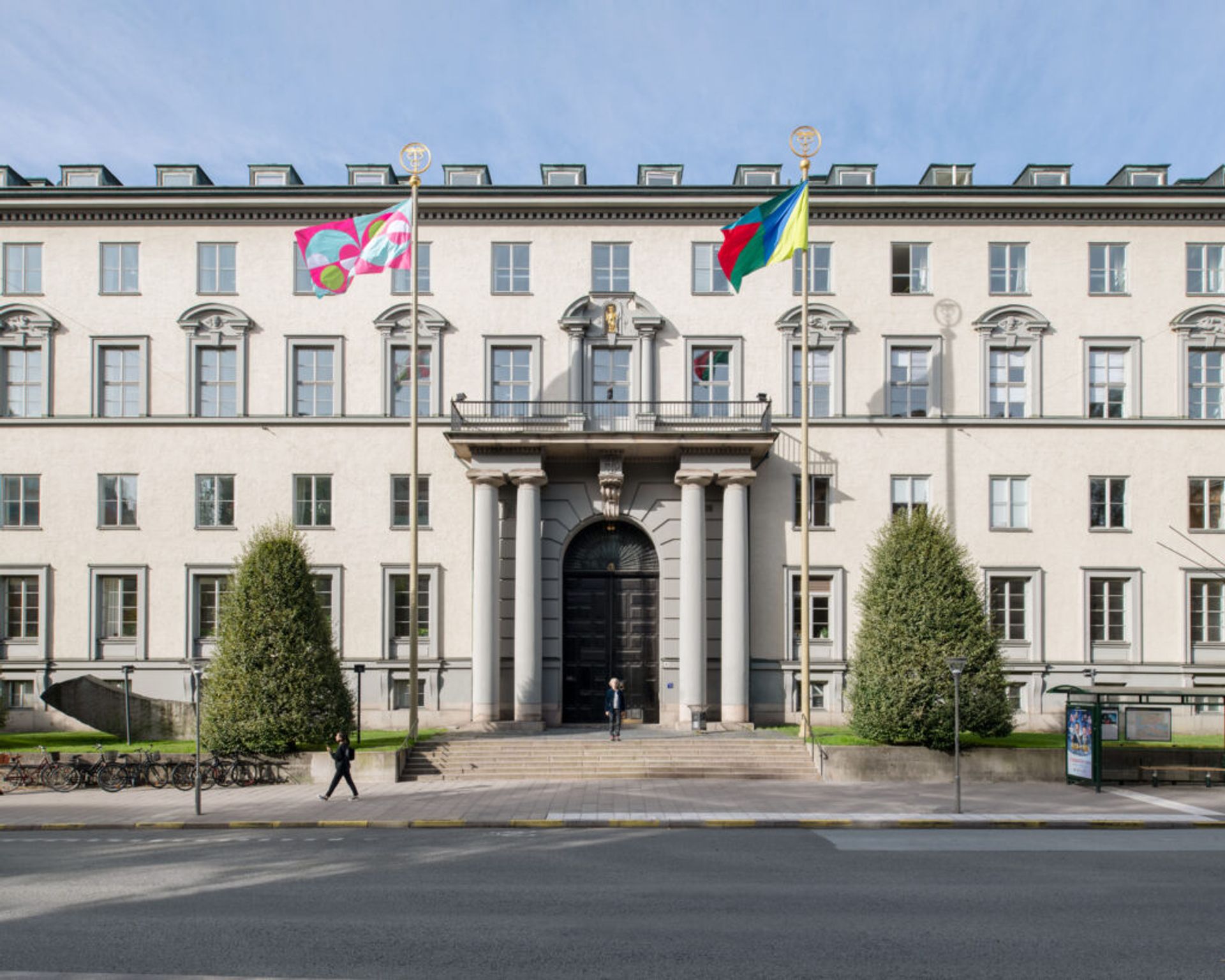

Stockholm School of Economics puts happiness on the curriculum
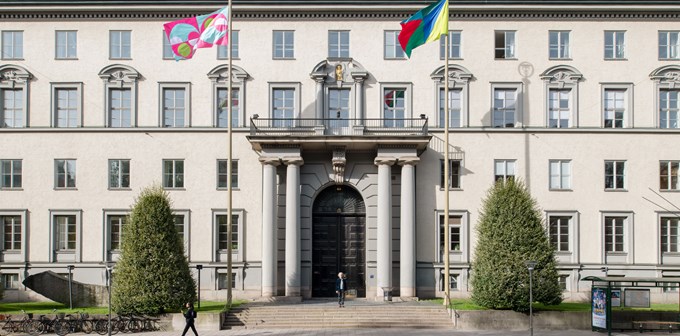
New students 2024

SSE MBA Executive Format
Stockholm school of economics.

How does carbon pricing affect CO2 emissions from manufacturing firms in Sweden?

Would electing more women make the U.S. Congress less polarized?

Stockholm School of Economics puts happiness on the curriculum for all new bachelor students

Navigating environmental policy consistency amidst political change

New publication | Nonstandard Errors
Sse alumni networking event in new york city.
Oliver Wyman, 1166 Avenue of the Americas, New York City, NY. Skyline Complex, 40th Floor at 18:30
Market Art Fair: panelsamtal
Publishing in high impact journals with katherine white (university of british columbia).
Hybrid. Center for Retailing, Saltmätargatan 13-17 (Conference room "Johan", 4th floor), 113 59 Stockholm at 10:00
Tech workshop | Applying data concepts in real case industry scenarios - 20 May 2024
Stockholm School of Economics. RSVP required. at 12:00
Beyond sight, not oversight: The remote work paradox of autonomy and control
Stockholm School of Economics, Sveavägen 65 at 08:00
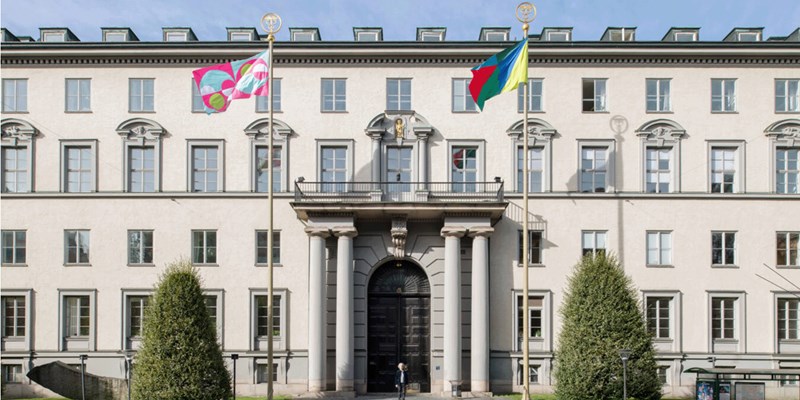
About the Stockholm School of Economics

Work at SSE

All SSE research in one place
{{courseDescription.PublicSubHeader}}
{{coursedescription.header}}, {{coursedescription.literatureheader}}, {{coursedescription.examinationheader}}.
PhD Program
The doctoral programme lasts in average 3 years during which students write their thesis within one of PSE laboratories. This programme is organized within the École Doctorale d’Économie ( ED465 ) that gathers research teams in Economics and related fields (applied math, statistics, sociology) of the University Paris 1, EHESS, ENS and ENPC. While preparing their thesis, PhD students receive training in the writing of academic articles in the fields of expertise of PSE’s faculty and are required to participate in both PSE’s regular research seminars and external conferences.
A number of PSE PhD alumni have been awarded prizes for their work, showing the high academic standards and the encouraging environment of this programme.
- Writing a thesis at PSE
- Details about the programme
- PhD students list
- Thesis Defenses 2022-2023
- Thesis Defenses 2023-2024
- Job Market Candidates
This programme is co-funded by a French government subsidy managed by the Agence Nationale de la Recherche under the framework of the Investissements d’avenir programme reference ANR-17-EURE-0001
Master’s Programme
Together with partners, SSE Riga is excited to offer a two-year international Master's programme in Service Design Strategies and Innovation (SDSI).
This is a new joint master’s programme with a focus on interdisciplinary studies and cross-specialisation. The programme partners include the Art Academy of Latvia , University of Lapland , Stockholm School of Economics in Riga, Estonian Academy of Arts , Kuldīga Municipality and Kuldīga Artists’ Residence .
Services design is a multidisciplinary and integrative field, therefore the programme aims to combine knowledge, insights, methods and tools from different disciplines - design, business, technology and social sciences.
The programme was launched in 2020/21 and offers a unique opportunity to combine academic studies and practise-based service design with companies.
SSE Riga Lecturer and PhD Candidate Inga Gleizdāne is SDSI Local Programme Director and coordinates the SDSI course at SSE Riga.
Study Process
The study process includes study periods abroad to Kuldīga in Latvia and Rovaniemi in Finland. Occasional workshops might be organised in Tallinn, Estonia and Riga, Latvia.
Students will have access to vast resources of SDSI partner schools, including prototyping studios and makerspaces in an international learning and networking environment. SDSI locations are ‘safe countries’ characterised by societies striving for social and economic development, wellbeing, and culture.
SDSI emphasises the development of leadership skills, which support students becoming change facilitators who can contribute to innovative, effective and socially responsible service organisations.
Graduates of this programme will be equipped with the knowledge and skills to be prepared for an uncertain future. They will know how to identify and satisfy unmet needs in a wide range of sectors. They will execute leadership roles in organisations in the private and public sectors, spearheading change processes, envisioning the future, managing multidisciplinary teams and overcoming innovation roadblocks.
Who Can Apply
Everyone with a minimum of two years of professional work experience and a Bachelor’s degree in any field of study.
A mid-level or senior professional from industry or the public sector who can demonstrate creative talents and leadership in innovative projects
Self-employed professional
Emerging entrepreneur
Motivated individual
How to Apply
Read more about the SDSI admissions dates and procedure at https://apply.sdsi.ma .
Less than 30 students will be admitted to the programme annually, enabling individual and personalised approaches to the study process and providing close networking among students and teaching personnel.
Graduates will be awarded a Master’s double degree, one from the Art Academy of Latvia and one from the University of Lapland.
Students interested in this international joint degree Master’s programme can find additional information on the SDSI website .
For questions, please, contact the SDSI Head of Programme, Ilze Kundziņa at [email protected] or +371 2837 3039
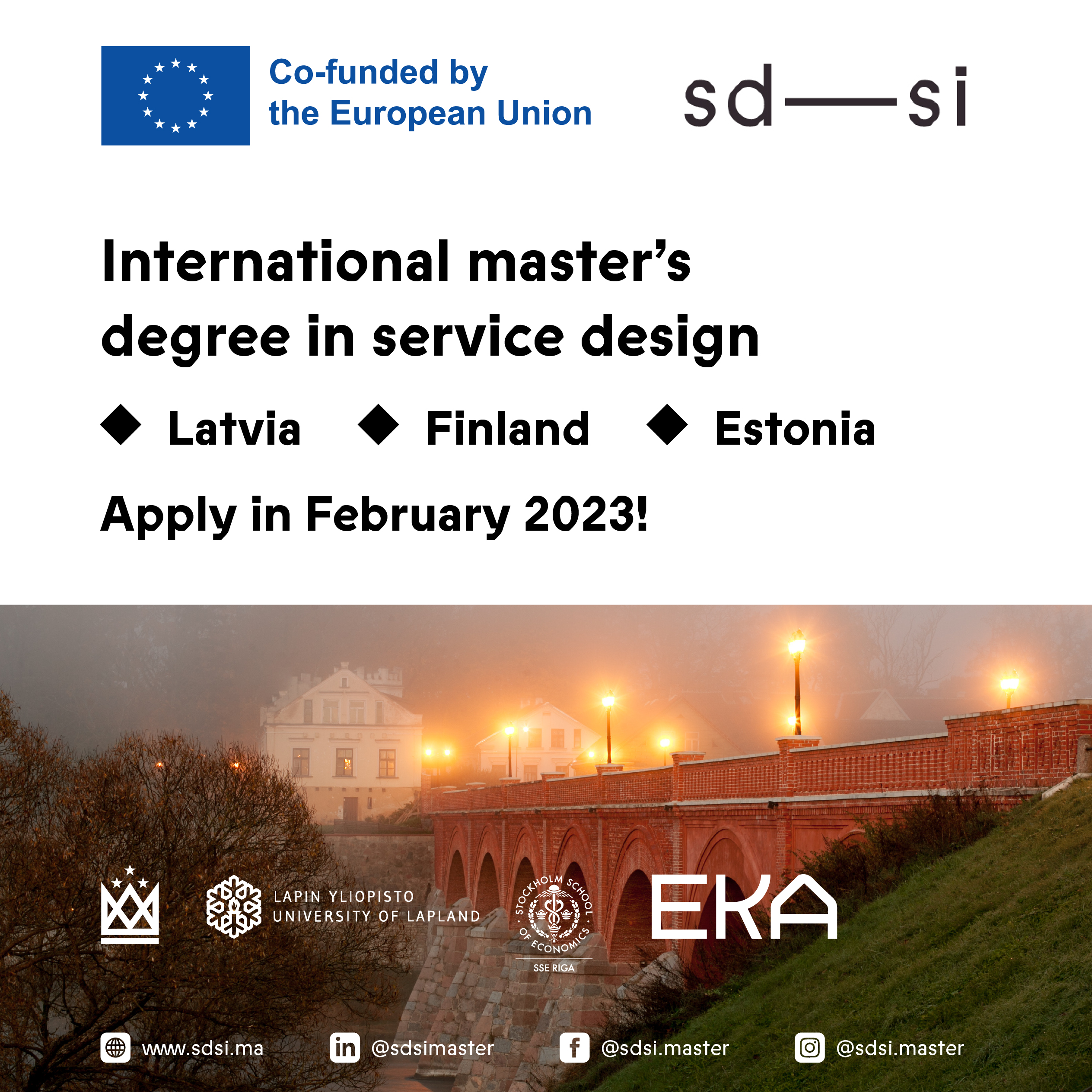
The international Service Design Strategies and Innovations' programme becomes an Erasmus Mundus Joint Master's degree
On behalf of the SDSI consortium, in September 2022, the Art Academy of Latvia (AAL) signed the grant agreement with the European Education and Culture Executive Agency on the Project No. 101082388 “Joint Master's Degree Programme in Service Design Strategies and Innovations” (SDSI). SDSI is an international masters’ degree that is jointly designed and delivered by 3 Nordic partners – the AAL, the University of Lapland in Finland, and the Estonian Art Academy. The Stockholm School of Economics in Riga, Latvia, participates in the programme as an associate partner, providing lectures and knowledge transfer from the business domain. Starting with the study year 2023/2024, SDSI will officially become an Erasmus Mundus Joint Masters’ programme.
Duration of the Project is from 01 October, 2022 till 30 November, 2028. During this period, four student intakes will be organized, starting with the study year 2023/2024.
During each intake around 30 international students will be admitted – at least 121 students in total for the duration of the project. 100 of the students will originate from the Erasmus+ Programme Countries, and 60 of them will be selected for the Erasmus Mundus scholarship of 1400 EUR per month for the duration of their studies (no more than 10% of the total number of scholarships will be awarded to students from the same nationality). Additional students will be selected and scholarships awarded to 21 students from the groups of the Neighbourhood, Development and International Cooperation (NDICI – 18 students) countries, as well as the Instrument for Pre-Accession Assistance (IPA – 3 students) countries. SDSI students will spend at least two study periods of 30 ECTS in two countries which are different from their country of residence - Latvia, Finland and Estonia.
The total grant amount of the Project No. 101082388 is 4 899 600.00 EUR, including 2 721 600.00 EUR that are allocated for student scholarships. The project has also two other associate partners - the Kuldīga District Municipality and the NGO “Kuldīga Artists’ residence '' - who will both ensure extra-curricular and cultural experiences for the SDSI students at their Latvian study location, the town of Kuldīga.
Service Design
Browser does not support script.
- Undergraduate
- Executive education
- Study Abroad
- Summer schools
- Online certificate courses
- International students
- Meet, visit and discover LSE
MRes/PhD Economics
- Graduate research
- Department of Economics
- Application code L1U4
- Starting 2024
- Home full-time: Closed
- Overseas full-time: Closed
- Location: Houghton Street, London
This programme offers you the chance to undertake a substantial piece of work that is worthy of publication and which makes an original contribution to the field of economics. You will begin on the MRes degree, and will need to meet certain requirements to progress to the PhD.
The Department of Economics pioneered the development of systematic research training in economics in Britain and our MRes/PhD Economics aims for the highest international standard of achievement and professional competence. The programme offers structured research training and supervision by faculty prominent in their fields. It begins with two years of rigorous coursework, equipping you with the theoretical knowledge and analytical techniques necessary to proceed to the research component of the programme.
Many research students are associated with the work of one of LSE's research centres. You could work with the Suntory and Toyota International Centres for Economics and Related Disciplines on areas ranging from development economics to public policy; or on research technology, growth and globalisation as part of the Centre for Economic Performance . You could contribute to major research programmes addressing the key issues of unemployment, inflation, fiscal and monetary policy, macroeconomic development and growth, financial markets, and changes in the world economy at the Centre for Macroeconomics ; or specialise in risk management, asset pricing, financial institutions and corporate finance as part of the Financial Markets Group .
Programme details
For more information about tuition fees and entry requirements, see the fees and funding and assessing your application sections.
Entry requirements
Minimum entry requirements for mres/phd economics.
An upper second class honours (2:1) degree (or equivalent) in any field. Some preparation in economics, a strong mathematics background and evidence of research potential are essential. The goal of the MRes/PhD Economics is to train first class researchers. We will use all available information to assess research potential.
Competition for places at the School is high. This means that even if you meet our minimum entry requirement, this does not guarantee you an offer of admission.
If you have studied or are studying outside of the UK then have a look at our Information for International Students to find out the entry requirements that apply to you.
GRE/GMAT requirement
GRE is required for all applicants. This must be no more than five years old on 1 October 2024 and must show full and percentile scores for all three sections. Most successful MRes/PhD Economics applicants score 166 or above in the quantitative section.
Find out more about GRE/GMAT
Assessing your application
We welcome applications for research programmes that complement the academic interests of members of staff at the School, and we recommend that you investigate staff research interests before applying.
We carefully consider each application on an individual basis, taking into account all the information presented on your application form, including your:
- academic achievement (including existing and pending qualifications) - statement of academic purpose - references - CV - research statement - GRE/GMAT
See further information on supporting documents
You may also have to provide evidence of your English proficiency. You do not need to provide this at the time of your application to LSE, but we recommend that you do. See our English language requirements for further information.
When to apply
The application deadline for this programme is 14 December 2023 . However, to be considered for any LSE funding opportunity, you must also have submitted your application and all supporting documents by this deadline. See the fees and funding section for more details.
Research statement
An application for entry to the MRes/PhD Economics should include a Research Statement, along with other required information (Note: A separate sample of written work is not required as part of the MRes/PhD Economics application).
What should my Research Statement contain?
Your Research Statement should be submitted in place of the Outline Research Proposal, along with your application form and other required supporting documents, via the LSE online application system.
Please answer the following questions clearly and concisely. Max 200 words per question.
- Why do you want to do research in economics?
- Can you explain how your studies and experience make you suitable to do research in economics?
- Which aspect of the PhD do you think you will like the most? Which will you dislike the most? Why?
- Tell us about your favourite paper in economics. What do you like about it? How would you improve it?
- Write a comment for a general audience on ONE of the following topics (i) Is inequality good for growth? (ii) Do immigrants take the jobs of native workers? (iii) Is CEO compensation excessive? (iv) Is universal minimum income a good idea? (v) Overall, has central banks' move to inflation targeting has been a success? (vi) Is culture an important determinant of differences in income per capita across countries? (vii) Markets function well as information is aggregated efficiently through prices. (viii) Elections are effective at disciplining politicians who do not have the public interest as their main goal.
How can I demonstrate research potential?
If you have served as research assistant for an economist please ask that person to write a letter focussing on your research skills and describe your experience – reference point 2 (above) of the research statement.
If not, please list any evidence you think would be valuable. Examples include but are not restricted to: experience working autonomously under stress without any guidance, demonstration of creativity in any form, experience of writing original research.
Fees and funding
Every research student is charged a fee in line with the fee structure for their programme. The fee covers registration and examination fees payable to the School, lectures, classes and individual supervision, lectures given at other colleges under intercollegiate arrangements and, under current arrangements, membership of the Students' Union. It does not cover living costs or travel or fieldwork.
Tuition fees 2024/25 for MRes/PhD Economics
Home students: £4,829 for the first year (provisional) Overseas students: £22,632 for the first year
The fee is likely to rise over subsequent years of the programme. The School charges home research students in line with the level of fee that the Research Councils recommend. The fees for overseas students are likely to rise in line with the assumed percentage increase in pay costs (ie, 4 per cent per annum).
The Table of Fees shows the latest tuition amounts for all programmes offered by the School.
The amount of tuition fees you will need to pay, and any financial support you are eligible for, will depend on whether you are classified as a home or overseas student, otherwise known as your fee status. LSE assesses your fee status based on guidelines provided by the Department of Education.
Further information about fee status classification.
Scholarships, studentships and other funding
The School recognises that the cost of living in London may be higher than in your home town or country, and we provide generous scholarships each year to home and overseas students.
This programme is eligible for LSE PhD Studentships , and Economic and Social Research Council (ESRC) funding . Selection for the PhD Studentships and ESRC funding is based on receipt of an application for a place – including all ancillary documents, before the funding deadline.
For the MRes/PhD Economics, the funding deadline is the same as the application deadline for the programme: 14 December 2023
The Economics Department also has a number of scholarship packages for direct entry MRes/PhD students. After the first year of the MRes/PhD Economics, there are teaching and research assistantships available in the Department. Read more about funding opportunities through the Economics Department .
In addition to our needs-based awards, LSE also makes available scholarships for students from specific regions of the world and awards for students studying specific subject areas. Find out more about financial support.
External funding
There may be other funding opportunities available through other organisations or governments and we recommend you investigate these options as well.
Further information
Fees and funding opportunities
Information for international students
LSE is an international community, with over 140 nationalities represented amongst its student body. We celebrate this diversity through everything we do.
If you are applying to LSE from outside of the UK then take a look at our Information for International students .
1) Take a note of the UK qualifications we require for your programme of interest (found in the ‘Entry requirements’ section of this page).
2) Go to the International Students section of our website.
3) Select your country.
4) Select ‘Graduate entry requirements’ and scroll until you arrive at the information about your local/national qualification. Compare the stated UK entry requirements listed on this page with the local/national entry requirement listed on your country specific page.
Programme structure and courses
Introductory course (mres).
In early September, before the academic year commences, you will begin your degree programme by taking the Introductory Mathematics and Statistics course.
First year (MRes)
In the first year of the programme you will take advanced core courses in microeconomics, macroeconomics and econometrics, to equip you with the theoretical knowledge and analytical techniques necessary for research. Permission must be obtained to sit Econometric Analysis as it is intended for students with a strong econometric background and an interest in pursuing a PhD with econometrics as the primary field.
Microeconomics for MRes students Introduces the basic analytical tools that are necessary to conduct research in any field in economics.
Macroeconomics for MRes students Covers topics in advanced macroeconomics with emphasis on fundamentals and applications to recent theoretical advances. Either Econometrics for MRes students Covers inference, classical and generalised linear regression, generalised regression methods, time-series, panel-data, and microeconometric methods, and specialised econometric methods. Or Econometric Analysis Gives an advanced treatment of the theory of estimation and inference for econometric models.
Second year (MRes)
In the second year, you will typically take two PhD field courses and write a research paper in your major field. Currently, there are economics PhD field courses covering: econometrics, international, labour, public, development, industrial, microeconomics, macroeconomics, political economy. In addition, there are PhD field courses offered in Corporate Finance and Asset Pricing. From the second year onwards, you will also participate in a departmental research seminar and a work in progress seminar allied to your major research field.
Research Paper in Economics A research paper, between 5,000 and 10,000 words, related to the student's designated major field, to be submitted mid-way through the Spring Term.
Two courses from a range of options
Upon successfully completing the MRes and progressing to the PhD, you will work on your research and write your PhD thesis. You will also take one further PhD field course. You will also attend Work in Progress seminars, where you present your research, as well as the weekly departmental seminar series closest to your major field.
One course from a range of options.
Second and subsequent years of the PhD programme
You will continue to work on your research and write a PhD thesis. You will also continue to attend Work in Progress seminars, where you present your research, as well as the weekly departmental seminar series closest to your major field.
For the most up-to-date list of optional courses please visit the relevant School Calendar page .
You must note, however, that while care has been taken to ensure that this information is up to date and correct, a change of circumstances since publication may cause the School to change, suspend or withdraw a course or programme of study, or change the fees that apply to it. The School will always notify the affected parties as early as practicably possible and propose any viable and relevant alternative options. Note that the School will neither be liable for information that after publication becomes inaccurate or irrelevant, nor for changing, suspending or withdrawing a course or programme of study due to events outside of its control, which includes but is not limited to a lack of demand for a course or programme of study, industrial action, fire, flood or other environmental or physical damage to premises.
You must also note that places are limited on some courses and/or subject to specific entry requirements. The School cannot therefore guarantee you a place. Please note that changes to programmes and courses can sometimes occur after you have accepted your offer of a place. These changes are normally made in light of developments in the discipline or path-breaking research, or on the basis of student feedback. Changes can take the form of altered course content, teaching formats or assessment modes. Any such changes are intended to enhance the student learning experience. You should visit the School’s Calendar , or contact the relevant academic department, for information on the availability and/or content of courses and programmes of study. Certain substantive changes will be listed on the updated graduate course and programme information page.
Supervision, progression and assessment
Supervision.
You will be assigned a lead supervisor (and a second supervisor/adviser) who is a specialist in your chosen research field, though not necessarily in your topic. Lead supervisors guide you through your studies.
Progression and assessment
In order to progress to each subsequent year of the programme, and to progress to PhD registration, you will need to meet specific progression requirements, such as achieving certain grades in your coursework.
Your final award will be determined by the completion of an original research thesis and a viva oral examination.
More about progression requirements
Student support and resources
We’re here to help and support you throughout your time at LSE, whether you need help with your academic studies, support with your welfare and wellbeing or simply to develop on a personal and professional level.
Whatever your query, big or small, there are a range of people you can speak to who will be happy to help.
Department librarians – they will be able to help you navigate the library and maximise its resources during your studies.
Accommodation service – they can offer advice on living in halls and offer guidance on private accommodation related queries.
Class teachers and seminar leaders – they will be able to assist with queries relating to specific courses.
Disability and Wellbeing Service – they are experts in long-term health conditions, sensory impairments, mental health and specific learning difficulties. They offer confidential and free services such as student counselling, a peer support scheme and arranging exam adjustments. They run groups and workshops.
IT help – support is available 24 hours a day to assist with all your technology queries.
LSE Faith Centre – this is home to LSE's diverse religious activities and transformational interfaith leadership programmes, as well as a space for worship, prayer and quiet reflection. It includes Islamic prayer rooms and a main space for worship. It is also a space for wellbeing classes on campus and is open to all students and staff from all faiths and none.
Language Centre – the Centre specialises in offering language courses targeted to the needs of students and practitioners in the social sciences. We offer pre-course English for Academic Purposes programmes; English language support during your studies; modern language courses in nine languages; proofreading, translation and document authentication; and language learning community activities.
LSE Careers – with the help of LSE Careers, you can make the most of the opportunities that London has to offer. Whatever your career plans, LSE Careers will work with you, connecting you to opportunities and experiences from internships and volunteering to networking events and employer and alumni insights.
LSE Library – founded in 1896, the British Library of Political and Economic Science is the major international library of the social sciences. It stays open late, has lots of excellent resources and is a great place to study. As an LSE student, you’ll have access to a number of other academic libraries in Greater London and nationwide.
LSE LIFE – this is where you should go to develop skills you’ll use as a student and beyond. The centre runs talks and workshops on skills you’ll find useful in the classroom; offers one-to-one sessions with study advisers who can help you with reading, making notes, writing, research and exam revision; and provides drop-in sessions for academic and personal support. (See ‘Teaching and assessment’).
LSE Students’ Union (LSESU) – they offer academic, personal and financial advice and funding.
PhD Academy – this is available for PhD students, wherever they are, to take part in interdisciplinary events and other professional development activities and access all the services related to their registration.
Sardinia House Dental Practice – this offers discounted private dental services to LSE students.
St Philips Medical Centre – based in Pethwick-Lawrence House, the Centre provides NHS Primary Care services to registered patients.
Student Services Centre – our staff here can answer general queries and can point you in the direction of other LSE services.
Student advisers – we have a Deputy Head of Student Services (Advice and Policy) and an Adviser to Women Students who can help with academic and pastoral matters.
Student life
As a student at LSE you’ll be based at our central London campus. Find out what our campus and London have to offer you on academic, social and career perspective.
Student societies and activities
Your time at LSE is not just about studying, there are plenty of ways to get involved in extracurricular activities . From joining one of over 200 societies, or starting your own society, to volunteering for a local charity, or attending a public lecture by a world-leading figure, there is a lot to choose from.
The campus
LSE is based on one campus in the centre of London. Despite the busy feel of the surrounding area, many of the streets around campus are pedestrianised, meaning the campus feels like a real community.
Life in London
London is an exciting, vibrant and colourful city. It's also an academic city, with more than 400,000 university students. Whatever your interests or appetite you will find something to suit your palate and pocket in this truly international capital. Make the most of career opportunities and social activities, theatre, museums, music and more.
Want to find out more? Read why we think London is a fantastic student city , find out about key sights, places and experiences for new Londoners . Don't fear, London doesn't have to be super expensive: hear about London on a budget .

Student stories
Hanwei Huang MRes/PhD Economics, 2018 China

I am a PhD student studying economics in the LSE. I am also affiliated with the Centre of Economic Performance (CEP), one of the largest research centres in the LSE. My main research interest is international trade.
One thing that I have learned from the faculties is that economics is not just about mathematics, it should answer interesting economics questions. Over the past few years in the LSE, I have been conducting a few research related to China. This is not surprising given my Chinese origin. Given the anti-globalization current that we have been witnessing, it is also quite relevant to the academic and policy circle to understand how China has become a global manufacturing power house and the champion of global trade.
My work features a close link between theory and empirics, another lesson I have learned in the LSE. My first piece of work done in the LSE focuses on the evolving structure of Chinese production and export. My second paper, which is a joint work with my supervisor Professor Ottaviano, studies how Chinese exporter producing multiple products respond to competition due to comparative advantage. My current research project studies how the domestic infrastructure construction boom that has been taking place in China has enabled China to make better use of globalization.
The most exciting part of LSE is that we are seated near the centre of the UK policy-making. I am fortunate enough to be able to be on a team from the CEP which has been studying various issues related to Brexit. It is only by doing this bit of work that I have seen how LSE research has shaped the debate in the media and the UK parliament.
As a one of the largest economics departments in the world, with numerous seminars and visitors every week, you bump into various people all the time. You might run into a workshop introducing machine learning. You might also hear people talking about big data in the Bean Counter, where we have our coffee. And I am very glad to be one of them here.
Stephan Maurer MRes/PhD Economics, 2017 Germany
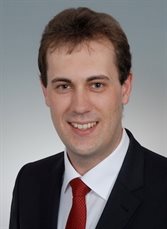
I came to the LSE in 2011 after having completed my MSc in Economics at the Barcelona Graduate School of Economics. Already during my undergraduate studies in St. Gallen, I had gotten hooked to economics and to the idea of doing a PhD, and my time in Barcelona further confirmed this.
My research is in applied economics broadly, at the intersection of labour economics, political economy, and economic history. Economic history is for me both a tool and an end itself - I am interested in better understanding historical events, but I also frequently use exogenous variation provided by history to study questions in labour economics and political economy.
What I really like about research and the academic profession is that it offers a lot of freedom and allows me to work independently on a variety of issues. For example, I have studied determinants of city growth in Iron Age Europe, but also local economic effects of resource booms in the early 20 th century US South. I also enjoy teaching - during my time here, I have taught various courses and have found it very enriching. Being asked to explain concepts such that students can understand them often has deepened my own understanding. In this respect, I particularly enjoyed teaching in the MPA and MSc Programmes.
Research can also be frustrating. It involves a great deal of failed projects, ideas that do not materialize, and work that does not reap rewards. It is also very discontinuous - you can make great progress in few days, or feel like you’re banging your head against a wall for months. I was lucky to have two very dedicated supervisors to guide me through my PhD, helping me triage my ideas, strengthening my results by constantly questioning them, but also cheering me up when needed. My colleagues and friends at the LSE have also been a great help, not only but especially those from my cohort. Studying for the first year exams and going through the first research steps together has created a lot of cohesion and friendships that I am sure will continue to last for a long time.
After finishing my PhD, I will be joining the Department of Economics at the University of Konstanz as an Assistant Professor. I am very much looking forward to this new endeavour, but I will make sure to be back in London and at the LSE from time to time!
Preliminary reading
Readings are included in the respective course guides in the Calendar .
Quick Careers Facts for the Department of Economics
Top 5 sectors our students work in:
- Financial and Professional Services
- Education, Teaching and Research
- Government, Public Sector and Policy
- Consultancy
- Advertising, Marketing, PR Media, Entertainment, Publishing and Journalism
The data was collected as part of the Graduate Outcomes survey, which is administered by the Higher Education Statistics Agency (HESA). Graduates from 2020-21 were the fourth group to be asked to respond to Graduate Outcomes.
Students who successfully complete the programme often embark on an academic career. See information on the placements of previous students on this programme .
Further information on graduate destinations for this programme
Starting from the second year of the MRes, students are encouraged to undertake some class teaching in the Department, as this represents useful professional training. Additional information about teaching in the Department .
Support for your career
Many leading organisations give careers presentations at the School during the year, and LSE Careers has a wide range of resources available to assist students in their job search. Find out more about the support available to students through LSE Careers .
Find out more about LSE
Discover more about being an LSE student - meet us in a city near you, visit our campus or experience LSE from home.
Experience LSE from home
Webinars, videos, student blogs and student video diaries will help you gain an insight into what it's like to study at LSE for those that aren't able to make it to our campus. Experience LSE from home .
Come on a guided campus tour, attend an undergraduate open day, drop into our office or go on a self-guided tour. Find out about opportunities to visit LSE .
LSE visits you
Student Marketing, Recruitment and Study Abroad travels throughout the UK and around the world to meet with prospective students. We visit schools, attend education fairs and also hold Destination LSE events: pre-departure events for offer holders. Find details on LSE's upcoming visits .
How to apply
Virtual Graduate Open Day
Register your interest
Related programmes, msc econometrics and mathematical economics.
Code(s) L1UB
MSc Economics
Code(s) L1U1
MRes/PhD Finance
Code(s) N4ZC
MPhil/PhD Economic Geography
Code(s) L7ZQ
MPhil/PhD Environmental Economics
Code(s) L7ZR
Request a prospectus
- Name First name Last name
- Address Address Line 1 Address Line 2 City County Postcode Country
Speak to Admissions
Content to be supplied
Department of Agricultural and Applied Economics
- Degree Programs
6.0. Doctor of Philosophy Degree Program
The doctoral program in Agricultural and Applied Economics is designed to develop a broad based competence in economic theory and in techniques of quantitative analysis. Dissertation research of students in our department usually addresses applied problems using contemporary economic theory and analytical methods. Students completing our program have demonstrated a high degree of success in academics, business, and government.
Two options are offered for the Doctor of Philosophy in the Agricultural and Applied Economics program. The first option does not require a minor. The second option includes a minor in Family Financial Planning—a joint Ph.D. program between the Department of Agricultural and Applied Economics and the College of Human Sciences. Completion of the Doctoral program in Agricultural and Applied Economics with a minor in Family Financial Planning qualifies graduates to take an exam administered by the Certified Financial Planning Board of Standards to become Certified Financial Planners.
6.1. Prerequisites
Most students will have completed the requirements for an M.S. degree or its equivalent before admission to the doctoral program. If the Master's degree does not meet the prerequisite requirements for entering our Master of Science program (see Section 5.1) then those requirements must be met in order to enter the Ph.D. program. Some exceptional students will be offered the opportunity to pursue a Ph.D. directly from a Bachelor's program. In this case, see the Graduate Coordinator for course and program requirements.
Background in algebra, partial and total differentiation, integration and basic matrix or linear algebra operations are very useful to perform well in coursework and research work.
6.2. Credit Hour Requirements
The doctoral program requires a minimum of 60 credit hours of course work beyond the baccalaureate degree and at least 12 credit hours of dissertation research (AAEC 8000).
6.3. Transfer of Credit
Transfer of graduate credit from other academic institutions may be allowed. The request for transfer must be initiated by the student and supported by the student's committee chair. Transfer decisions are made by the department Graduate Coordinator and must be approved by the Graduate School . Information required in support of transfer requests includes academic transcripts and course catalogue descriptions of each course proposed for transfer. Course syllabi may also be requested to support transfer decisions.
6.4. Substitution for Core Courses
Substitutions for core courses are allowed only under unusual circumstances. Requests for substitutions for core courses must be initiated by the student and his or her committee chair, to the department Graduate Coordinator and must be approved by the Graduate School . Final decisions on substitutions for core courses taught outside our department are made by the department Graduate Coordinator . Decisions on core courses taught in the department are made by the current instructor of the core course being replaced.
6.5. Ph.D. Comprehensive Examination
The purpose of the Ph.D. comprehensive examination is to test the student's ability to integrate knowledge from various subject matter areas and apply appropriate concepts and tools to issues and problems relevant to the discipline. The comprehensive exam is administered by a departmental committee twice each year (usually in May and August) and is normally taken at the end of the first full year of coursework. The exam has two parts which are taken separately. Part 1 of the exam focuses econometric methods and Part 2 covers microeconomic theory. Students have two opportunities to pass both parts of the exam. If both parts of the exam are passed on the first attempt then the student has successfully completed this degree requirement. If one or both parts of the exam are failed on the first attempt (usually in May), the student must retake the failed part(s) at the next offering (in the following August). A second failure of either part of the comprehensive exam will result in dismissal from the student's Ph.D. program.
6.6. Qualifying Examination and Admission to Candidacy
Graduate school rules require that all doctoral students successfully complete a Qualifying Examination for admission to candidacy for the doctor's degree. In the Department of Agricultural and Applied Economics the Dissertation Proposal Defense serves as the Qualifying Exam. Students are allowed two attempts to satisfactorily complete this examination. Failure to satisfactorily complete the examination on a second attempt will result in dismissal from the Ph.D. program. Further information on the Dissertation Proposal and Proposal Defense is provided in Section 9.0 of this Handbook.
6.7. Final Examination
All doctoral candidates are required to pass a public final oral examination which is usually over the general field of the dissertation. Candidates should consult the Graduate School for details regarding scheduling of the final examination. After the final examination, the professor conducting comprehensive exams will send a written notification of the results to the Graduate Secretary for the student's graduate file.
Doctoral candidates, with their major advisor, are required to find their own Dean's Representative for the Graduate School for their defense, preferably someone outside of the department.
Public announcement of exams will be done through the department Graduate Secretary. Exams must be announced at least four weeks prior to the exam date, without exception.
6.9. Degree Program Course Requirements
Listed below are the course requirements for the Ph.D. program options. Courses listed specifically by number are core courses. Note that the option II course requirements have been revised in consultation with the Department of Personal Financial Planning.
Ph.D in Agricultural and Applied Economics - No Minor Required (option1) 1
Course number / course title / credit hours.
- AAEC 5303 / Advanced Production Economics / 3
- AAEC 5307 / Applied Econometrics I / 3
- AAEC 6316 / Advanced International Trade and Policy / 3
- AAEC 5321 / Research Methodology in Economics/ 3
- AAEC 6302 / Food, Ag., and Nat. Resource Policy Analysis / 3
- AAEC 6305 / Economic Optimization / 3
- AAEC 6308 / Advanced Natural Resource Economics / 3
- AAEC 6310 / Demand and Price Analysis / 3
- AAEC 6311 / Applied Econometrics II / 3
- AAEC 6301 / Microeconomic Theory II / 3
- AAEC 6315 / Applied Microeconomics I / 3
- ECO 5311 / Macroeconomic Theory and Policy / 3
- Committee Approved Field Courses / / 24
- AAEC 8000 / Doctor's Dissertation / 12
Total Credit Hours 72
Ph.D. in Agricultural and Applied Economics - Minor in Family Financial Planning (option 2) 1,2
- AAEC 8000 / Doctor's Dissertation / 21
- PFP 5371 / Fundamentals of Personal Financial Planning / 3
- PFP 5372 / Asset Management II / 3
- PFP 5373 / Personal Financial Planning Cpstn. / 3
- PFP 5394 / Retirement Planning / 3
- PFP 5497 / Risk Management and Insurance Planning / 4
- PFP 5398 / Estate Planning / 3
- PFP 5362 / Asset Management I / 3
- PFP 5377 / Client Communication and Counseling / 3
- ACCT 5311 / Individual Study in Accounting / 3
total credit hours 85
1 Numbered courses are core courses. 2 Draft revisions pending review and approval of AAEC faculty.
<<< top >>>
Contact TTU
- Like Department of Agricultural and Applied Economics on Facebook Like Department of Agricultural and Applied Economics on Facebook

UCLA Graduate Student Huihuang Zhu is the 2024 recipient of the Treiman Fellowship

UCLA Department of Economics
8283 Bunche Hall Mail Stop: 147703 Los Angeles, CA 90095
Campus Resources
- Academic Calendar
- Maps, Directions, Parking
- University of California
- Terms of Use
- Injury & Illness Prevention Program
Internal Resources Manager’s Manual Admin Login Webmail (O365 Server) Contact Webmaster
- About the Department
- Administration
- Board of Visitors
- Department Newsletters
- Ladder Faculty
- Courtesy Faculty
- In Memoriam
- Recent Publications
- Research Spotlight
- Economics Major
- Business Economics Major
- Declare our Majors
- Degree Planning
- Benjamin Graham Value Investing Program
- Enrollment Procedures
- Frequently Asked Questions
- Student Wellness & Community
- Department of Economics Commencement 2024
- Course Descriptions
- Economics Class Schedule
- Learning Objectives
- Common Syllabus
- Non-UCLA Course Credit
- Econ Summer Courses for 2024
- Departmental Honors
- Departmental Scholar
- Departmental Scholarships
- Career Pathways
- Fellowships
- Career Center
- Internships
- Research Opportunities
- Preparing for a Ph.D. in Economics
- EDI Courses in Economics
- EDI Research
- EDI Resources for Students
- Incoming Undergraduates
- Why Study Economics?
- Freshmen Information
- Transfers Information
- Economics Courses
- Graduate Handbook
- Graduate Student Awards
- Standards and Procedures
- Second Year
- Thesis Writing
- TA Resources
- Job Market Prep
- Grad Econ Association
- Computing Resources
- Placement History
- Job Market Candidates
- Graduate Counseling Office
- Commencement videos
- Alumni Career Engagement
- UCLA Alumni Affairs
- Update Your Information
- Alumni Interviews
- Women in Business
- Proseminars
- CEU PU - Deutsch
- Közép-európai Egyetem
CIVICA Announces Scholars for Extended Faculty Visits Program

The CIVICA alliance has proudly unveiled the names of 17 accomplished academics selected for its fourth call of the Faculty Short Visits program , extending from this academic year through to May 2025. This initiative marks a significant effort to bolster interdisciplinary research and educational innovation across European social sciences universities.
Under this unique programme, faculty and postdoctoral researchers from CIVICA member institutions will engage in short-term visits at partner universities. These opportunities are designed to accelerate scholarly work, foster collaborative research projects, and build lasting academic relationships.
The selection of candidates was meticulously conducted by a committee of vice-presidents for research and senior faculty, ensuring each participant was chosen for their strong and innovative research proposals. These proposals encompass approximately 50 activities, ranging from CIVICA talks, workshops, seminar series and conferences, to student-faculty research groups and specialised lectures for early-stage researchers.
This broad array of activities guarantees that both the selected participants and the broader CIVICA community will greatly benefit from these enriched academic opportunities.
Below is a list of the selected professors and postdoctoral researchers, along with their home institutions and the institutions they will be visiting:
Name Sending University Host University
The graph displays the total number of participants categorised by sending and hosting institutions. It encompasses all selected applicants from both the first round (May-December 2023), the second round (December 2023-March 2024), the third round (March-June 2024) and the fourth round (March-May 2024) of the CIVICA Faculty Short Visits.
This latest cohort of 17 scholars adds to the inaugural group of 26 selected in the initial round launched last May and the second group of 18 scholars selected in December of the previous year. Concurrently, the third cohort of visiting faculty is presently immersed in enriching visits across various member institutions within the CIVICA alliance.
As we congratulate the successful applicants, we eagerly anticipate the academic enrichment and new collaborations that will stem from this programme, reinforcing CIVICA's role as a leader in academic innovation and inter-university cooperation in the social sciences.
The CIVICA Faculty Short Visits Scheme is organised in the framework of CIVICA - The European University of Social Sciences, funded by the Erasmus+ programme. CIVICA brings together ten leading European higher education institutions in the social sciences, humanities, business management and public policy, with a total of 72,000 students and 13,000 faculty members. Together, they build on an ever-stronger combination of teaching, research and innovation to mobilise and share knowledge as a public good and to facilitate civic responsibility in Europe and beyond.
Top Stories

Reflections on Spring Semester 2024
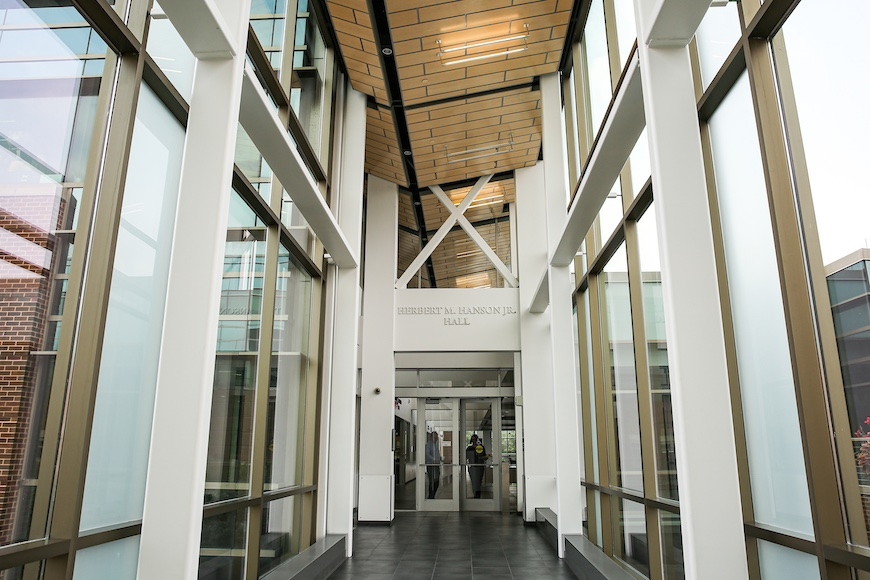
As I write, it is graduation weekend, and I am about to head to Mariucci Arena for CLA’s undergraduate commencement. This past Friday evening, as department chair, I had the honor of presiding over the economics department’s graduation ceremony , celebrating both our undergraduate and PhD students who completed their degrees. (It was more “pomp and circumstance” than anything we have ever tried, so special thanks to our amazing staff for their great job pulling it off.)
A highlight of the ceremony was hearing the three student speakers articulate how their training in Minnesota Economics—whether it be at the graduate or undergraduate level—will equip them as they go out into the world and aim to make a difference.
A poignant moment was when one undergraduate speaker noted that she and many of her classmates had graduated from high school in the spring of 2020 and they had missed the traditional graduation experience because of COVID. Our ceremony was the first time these students got to be called up to the stage to recognize and celebrate their achievements. Congratulations indeed to the Minnesota Economics class of 2024!
New BA with Business Economics Emphasis
We have some big news about our undergraduate curriculum. In collaboration with the Carlson School of Management (CSOM), we have added a new economics BA degree that has business-economics emphasis, our first new major since the late 1980s.
We have always had economics students (including surely some reading this newsletter) pursuing a business-economics track, both by taking business-oriented economics courses such as money and banking within our major and taking CSOM classes outside of our major. What's new and exciting about the new business economics major is that by bringing CSOM classes inside the major, students have more options and flexibility for getting business content in their curriculum.
We are grateful to our alumnus Matt Mazzucchi (BA ‘04) for coming to campus this spring to speak to a standing-room-only audience, generating great enthusiasm among our undergraduates for the new major. Matt discussed the crucial impact his business economics curriculum at Minnesota has had on his career at Houlihan Lokey, where he is currently managing director and co-head of its Power & Utilities Group and the Energy Group.
This new major adds to our already great line-up of major choices . If you have the chance to talk to high school students applying to college, please spread the word about the exciting things we are doing!
Undergraduates Travel to Washington DC
In other news about our undergraduate program, we were delighted this year to partner with the Humphrey School of Public Affairs for the third year in a row in offering a Washington DC career trip to ten of our undergraduate economics majors. The selected students are all interested in public policy. Through this program, the students made various on-site visits, such as the World Bank, where they attended panel discussions and participated in networking events and informal interviews. Through this program, our students learn how to use their economics degrees as a pathway to public services careers.
Our Graduate Students
Turning to graduate program news, in the December newsletter we put a link to the list of our new PhDs going on the job market. Now with the spring newsletter we can share our graduate students’ placement results . They range from major research universities, to liberal arts, to government, to industry.
Through the high value added of our program, we are producing tomorrow's leaders across these various spheres.
To better attract top students to our graduate program, we have been expanding our use of fellowships, including increasing the number of first-year students who receive them. We have also used fellowship funds to supplement our teaching stipends, making our offers more competitive with other top institutions. Our ability to expand fellowships is entirely thanks to the generosity of our alumni and friends, which is enabling us to make significant strides forward. While there is still more work to do, I am optimistic that we will continue to make progress.
This year, we introduced a new event for our third-year PhD students, The Richard and Ellen Sandor Poster Conference , and we are grateful to the Sandors for funding the event and establishing a prize for the winner. Combining the lure of prize money with competitive peer pressure motivated our students to create impressive work. In fact, the work was so good that we took the show on the road to the Federal Reserve Bank of Minneapolis, just down the street.
A second new initiative was to ask all our PhD students going on the market next fall to produce early but complete versions of their job market papers this spring. Based on these completed early drafts, the department awarded three dissertation fellowships. Furthermore, every student meeting the deadline received additional support to help with their extra liquidity needs during the job market year. Incentives matter! All the students submitted complete drafts by the deadline. The faculty will be working with the students all summer to polish and improve on these complete drafts to get them in even better condition for the market next fall.
Again, I want to pause and highlight that all of these new initiatives have only been possible because of the generosity of our alumni and friends. This generosity is making a big difference!
Economics Alum to Receive UMN Outstanding Achievement Award
In June we will have a special event to honor our alumnus Andreu Mas-Colell (PhD ‘72) with the University of Minnesota’s Outstanding Achievement Award, an honor reserved for the University’s most distinguished graduates.
My colleague Tim Kehoe wrote a wonderful article about Andreu’s extraordinary contributions , which includes a discussion of Andreu’s pioneering research in economics. Andreu’s work building academic institutions is also being recognized by the award and it is therefore fitting that the award ceremony will be in Barcelona on the site of the Barcelona School of Economics which he built.
Heller-Hurwicz Economics Institute Update
The Heller-Hurwicz Economics Institute (HHEI) continues to be a driving force of excellence for the Department of Economics, both in the way that it supports the rigorous research that we do here and in the way that it serves as a bridge for this research to impact public policy.
To learn about the many exciting things that HHEI is doing, I encourage you to check the latest HHEI Annual Report . In April, we kicked off our second season of the Heller-Hurwicz Office Hours podcast , with topics ranging from mergers and acquisitions, to tax policy, climate, and more. Be sure to catch up on the latest episodes!
Faculty & Staff Awards
Finally, we wish to congratulate Senior Lecturer Fahima Aziz for her Excellence in Undergraduate Teaching Award and Chief of Staff Kara Kersteter for her Outstanding Service Award!
Thank you for your continued interest and support of both the Department of Economics and the Heller-Hurwicz Economics Institute. If you'd like to make an unrestricted gift this year, you can give to the Economics Annual Fund or the Heller-Hurwicz Program Fund. Or you can search for your favorite named fund. Thanks to the generosity of our alumni and friends, we continuously strive to be one of the best economics programs in the world.
Wishing you a wonderful summer from Minnesota Economics! I love hearing from all of you and you can always drop me a line at [email protected] .
Thomas J. Holmes Professor and Chair, Department of Economics [email protected]
Related News
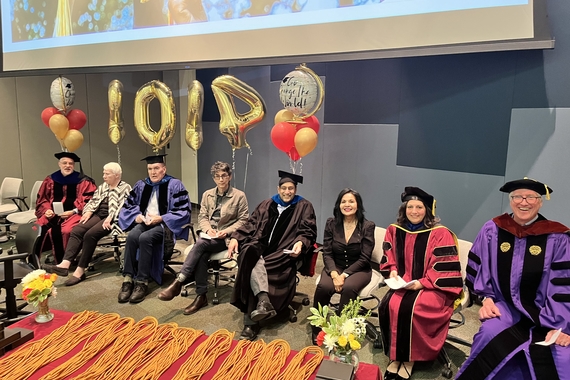
Economics Celebrates its 2024 Graduates
The Department of Economics celebrated its 2024 graduates with a combined ceremony honoring both baccalaureate graduates and doctoral graduates.
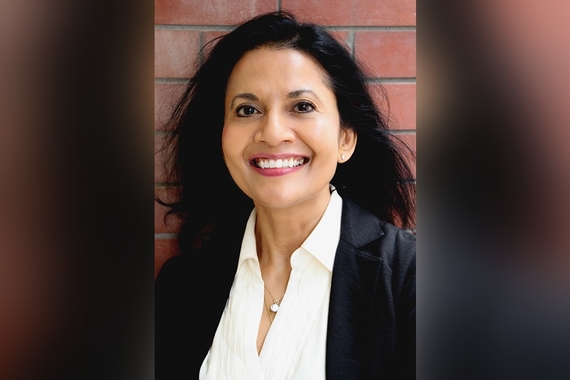
Fahima Aziz Wins the Excellence in Undergraduate Teaching Award
Students, alumni, and faculty celebrate Dr. Fahima Aziz, who has been applauded in the economics department for her unwavering commitment to students
Senior Spotlight: Gavin Johnson on Economics and the Transfer Experience
Gavin transferred to the U with a love for economics. He graduates with a burgeoning interest in development and consulting work and making the world a better place.
More Economics News
Congratulations to the 2024 recipient of the Robert M. Solow Prize
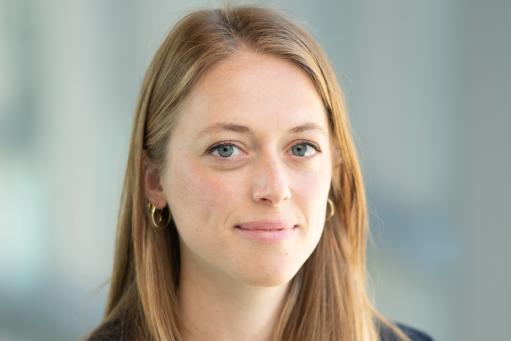
MIT Economics alumni and faculty established the Robert M. Solow Prize for Graduate Student Excellence in Teaching and Research to celebrate graduate students who reflect one of the department's core values, as embodied by Robert Solow: the interdependence of innovative research and excellence in teaching.
Congratulations to recent PhD graduate Viola Corradini who has been awarded the 2024 Solow Prize for their remarkable contributions to the educational and research missions of MIT Economics.

ABC News: Starbucks sees sales slump
Uc economist says it would be more concerning if other companies also reported revenue declines.

Sales at Starbucks are slumping, ABC News reported , which has some people worried about broader consumer spending.
Michael Jones, PhD, assistant professor of economics
In an earnings report, the coffee chain reported an approximately 2% decline in revenue over the first three months of the year. Many economic analysts view Starbucks as a bellwether for consumer spending, leading to questions about whether the reduced consumer spending is a problem specific to the company or to the economy as a whole.
Michael Jones , PhD, assistant professor of economics in the University of Cincinnati's Carl H. Lindner College of Business, told ABC News there should be concern if more companies start reporting similar declines to revenue.
“When you see it happening at companies outside of Starbucks, that’s when it becomes a broader worry that you’re concerned about,” Jones said.
See more from ABC News.
Featured image at top: Starbucks logo and coffee beans. Photo/engin akyurt via Unsplash
Impact Lives Here
The University of Cincinnati is leading public urban universities into a new era of innovation and impact. Our faculty, staff and students are saving lives, changing outcomes and bending the future in our city's direction. Next Lives Here.
- Lindner College of Business
- In The News
Related Stories
Wcpo: uc economist says wages can’t keep up with inflation.
March 22, 2022
Multiple disruptions to the U.S. economy are posing problems for consumers, according to Michael Jones, PhD, associate professor of economics at the University of Cincinnati Carl H. Lindner College of Business.
Spectrum News 1: Inflation reaches 40-year high
April 13, 2022
A number of factors have caused inflation to reach a 40-year high, but it won’t be a permanent problem, University of Cincinnati economics professor Asawari Deshmukh told Spectrum News 1.
WCPO: Small businesses face challenges
April 19, 2022
As businesses are squeezed by inflation, staffing shortages and supply chain issues, companies are having to adjust, a University of Cincinnati economics professor told WCPO.

IMAGES
VIDEO
COMMENTS
The PhD program in Economics (240 ECTS) is a North American-style program with around 35 doctoral students. A specially designed course program, the Stockholm Doctoral Course Program in Economics, Econometrics and Finance (SDPE), is organized by SSE jointly with Stockholm University for the PhD students in Economics and Finance.This joint undertaking has developed into one of the strongest ...
Department of Economics. Education. Study with us. The PhD programme in Economics at Stockholm University is broadly considered one of the very best in Europe. The US-style programme is fully international in its orientation, and the vast majority of students enter the global economics job market. Life as a PhD student at Stockholm University:
However, SSE has a three-point scale: pass with distinction (VG), pass and fail, and you will receive additional grades on this scale in your first year, which will be reported in another system by the department. Graduate students' council (GSC) at the Department of Economics. GSC is a forum for discussion among the graduate students.
The Stockholm School of Economics ( SSE; Swedish: Handelshögskolan i Stockholm, HHS) is a private business school located in city district Vasastaden in the central part of Stockholm, Sweden. SSE offers BSc, MSc and MBA programs, along with PhD - and Executive education programs. [3] SSE is accredited by EQUIS and is a member of CEMS.
Stockholm School of Economics (SSE) is a top European business school with close links to prominent business leaders and influencers in the Nordic countries. In addition to conducting world-leading research, SSE offers Bachelor, Master, PhD, MBA and executive education to high-achieving students.
The PhD Program in Economics at Stockholm University is a U.S.-style program with a total enrollment of around 70 graduate students. The program combines first-year core courses in math, micro, macro, and econometrics with second-year courses covering a broad range of specializations. The program is fully international in its orientation and ...
SSE is a small school, and the SSE experience is unique. As a PhD student, you are part of a close- knit group of students and professors, and you make friends for life. Classes are small and the faculty, although very often leading experts, highly accessible. is Teaching untraditional, hands-on and with many live cases. Not
The PhD Program in Economics (240 ECTS) is a North American-style program with around 35 doctoral students. A specially designed course program, the Stockholm Doctoral Course Program in Economics, Econometrics and Finance (SDPE), is organized by SSE jointly with Stockholm University for the PhD students in Economics and Finance.
Stockholm School of Economics (SSE) is a top European business school with close links to prominent business leaders and influencers in the Nordic countries. In addition to conducting world-leading research, SSE offers Bachelor, Master, PhD, MBA and executive education to high-achieving students. #501 Ranking. 3 PhDs. Private Institution Type.
The Stockholm School of Economics (SSE) is a private university that was founded in 1909 by the Swedish industry. SSE is rated as the top business school in the Nordic and Baltic countries and is highly regarded internationally. The business school offers programs of the highest international standards, including Bachelor, Master, PhD, MBA and ...
The Stockholm School of Economics has been ranked by the Financial Times as one of the best business schools in Europe and enjoys a strong international reputation. World-class research forms the foundation of SSE's educational offering, which includes Bachelor, Master, PhD, MBA, and Executive Education programs.
SSE offers Bachelor and Master programs along with highly regarded PhD, MBA and executive education programs. ... The Stockholm School of Economics is an academic hub for ambitious students and researchers from all over the world and has been ranked as one of the best business schools in Europe by the Financial Times. By working closely with ...
In addition to conducting world-leading research, SSE offers Bachelor, Master, PhD, MBA and executive education to high-achieving students. Stockholm School of Economics performs well in the QS World University Rankings by Subject, celebrated among the world's leaders in the fields of business and management studies, accounting and finance ...
Description of course/module {{courseDescription.CourseNr}} at the Stockholm School of Economics
PhD Program. The doctoral programme lasts in average 3 years during which students write their thesis within one of PSE laboratories. This programme is organized within the École Doctorale d'Économie ( ED465) that gathers research teams in Economics and related fields (applied math, statistics, sociology) of the University Paris 1, EHESS ...
SSE Riga Lecturer and PhD Candidate Inga Gleizdāne is SDSI Local Programme Director and coordinates the SDSI course at SSE Riga. ... The Stockholm School of Economics in Riga, Latvia, participates in the programme as an associate partner, providing lectures and knowledge transfer from the business domain. Starting with the study year 2023/2024 ...
For the MRes/PhD Economics, the funding deadline is the same as the application deadline for the programme: 14 December 2023. The Economics Department also has a number of scholarship packages for direct entry MRes/PhD students. After the first year of the MRes/PhD Economics, there are teaching and research assistantships available in the ...
SU economics departments. The faculty The economics group is one of the strongest among all fields at Stockholm University. It is a very U.S.-style group, where publication merits are in focus. All in all, there is a total of 90 full-time faculty in economics at SU. Of them, a significant fraction are international scholars (i.e., they are neither
6.0. Doctor of Philosophy Degree Program. The doctoral program in Agricultural and Applied Economics is designed to develop a broad based competence in economic theory and in techniques of quantitative analysis. Dissertation research of students in our department usually addresses applied problems using contemporary economic theory and ...
The California Center for Population Research selected UCLA Graduate Student Huihuang Zhu as the 2024 recipient of the Treiman Fellowship. Huihuang's project, "Evaluating the Equity and Efficiency Tradeoffs of Academic Tracking: Lessons from Advanced Placement," uses event-study and differences-in-differences methodology and finds that the AP program had large effects on the likelihood ...
The CIVICA Faculty Short Visits Scheme is organised in the framework of CIVICA - The European University of Social Sciences, funded by the Erasmus+ programme. CIVICA brings together ten leading European higher education institutions in the social sciences, humanities, business management and public policy, with a total of 72,000 students and 13,000 faculty members.
PhD Handbook. i. The USC Department of Economics is committed to providing each of our students a rigorous education. Our PhD in Economics program aims to train students to produce original research in Economics, culminating in a dissertation. We recognize that our students are diverse and have different career aspirations.
Reflections on Spring Semester 2024. May 16, 2024. As I write, it is graduation weekend, and I am about to head to Mariucci Arena for CLA's undergraduate commencement. This past Friday evening, as department chair, I had the honor of presiding over the economics department's graduation ceremony, celebrating both our undergraduate and PhD ...
MIT Economics alumni and faculty established the Robert M. Solow Prize for Graduate Student Excellence in Teaching and Research to celebrate graduate students who reflect one of the department's core values, as embodied by Robert Solow: the interdependence of innovative research and excellence in teaching.
In The News. Economics. Sales at Starbucks are slumping, ABC News reported, which has some people worried about broader consumer spending. Michael Jones, PhD, assistant professor of economics in the University of Cincinnati's Carl H. Lindner College of Business, told ABC News there should be concern if more companies start reporting similar ...